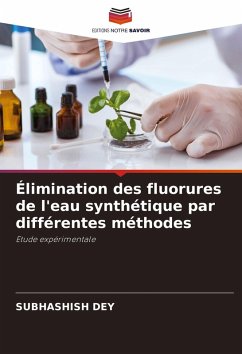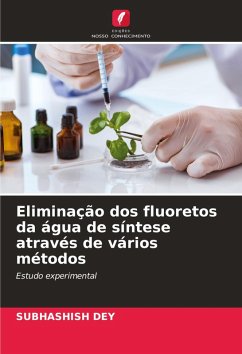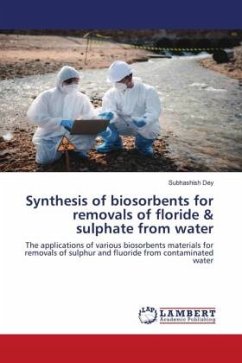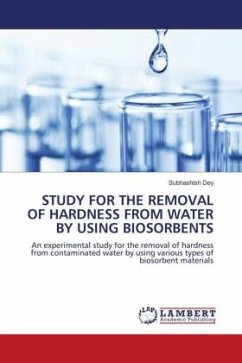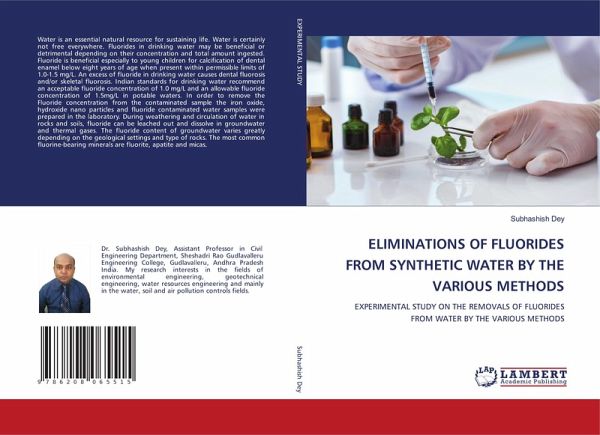
ELIMINATIONS OF FLUORIDES FROM SYNTHETIC WATER BY THE VARIOUS METHODS
EXPERIMENTAL STUDY ON THE REMOVALS OF FLUORIDES FROM WATER BY THE VARIOUS METHODS
Versandkostenfrei!
Versandfertig in 6-10 Tagen
40,99 €
inkl. MwSt.

PAYBACK Punkte
20 °P sammeln!
Water is an essential natural resource for sustaining life. Water is certainly not free everywhere. Fluorides in drinking water may be beneficial or detrimental depending on their concentration and total amount ingested. Fluoride is beneficial especially to young children for calcification of dental enamel below eight years of age when present within permissible limits of 1.0-1.5 mg/L. An excess of fluoride in drinking water causes dental fluorosis and/or skeletal fluorosis. Indian standards for drinking water recommend an acceptable fluoride concentration of 1.0 mg/L and an allowable fluoride...
Water is an essential natural resource for sustaining life. Water is certainly not free everywhere. Fluorides in drinking water may be beneficial or detrimental depending on their concentration and total amount ingested. Fluoride is beneficial especially to young children for calcification of dental enamel below eight years of age when present within permissible limits of 1.0-1.5 mg/L. An excess of fluoride in drinking water causes dental fluorosis and/or skeletal fluorosis. Indian standards for drinking water recommend an acceptable fluoride concentration of 1.0 mg/L and an allowable fluoride concentration of 1.5mg/L in potable waters. In order to remove the Fluoride concentration from the contaminated sample the iron oxide, hydroxide nano particles and fluoride contaminated water samples were prepared in the laboratory. During weathering and circulation of water in rocks and soils, fluoride can be leached out and dissolve in groundwater and thermal gases. The fluoride content of groundwater varies greatly depending on the geological settings and type of rocks. The most common fluorine-bearing minerals are fluorite, apatite and micas.






